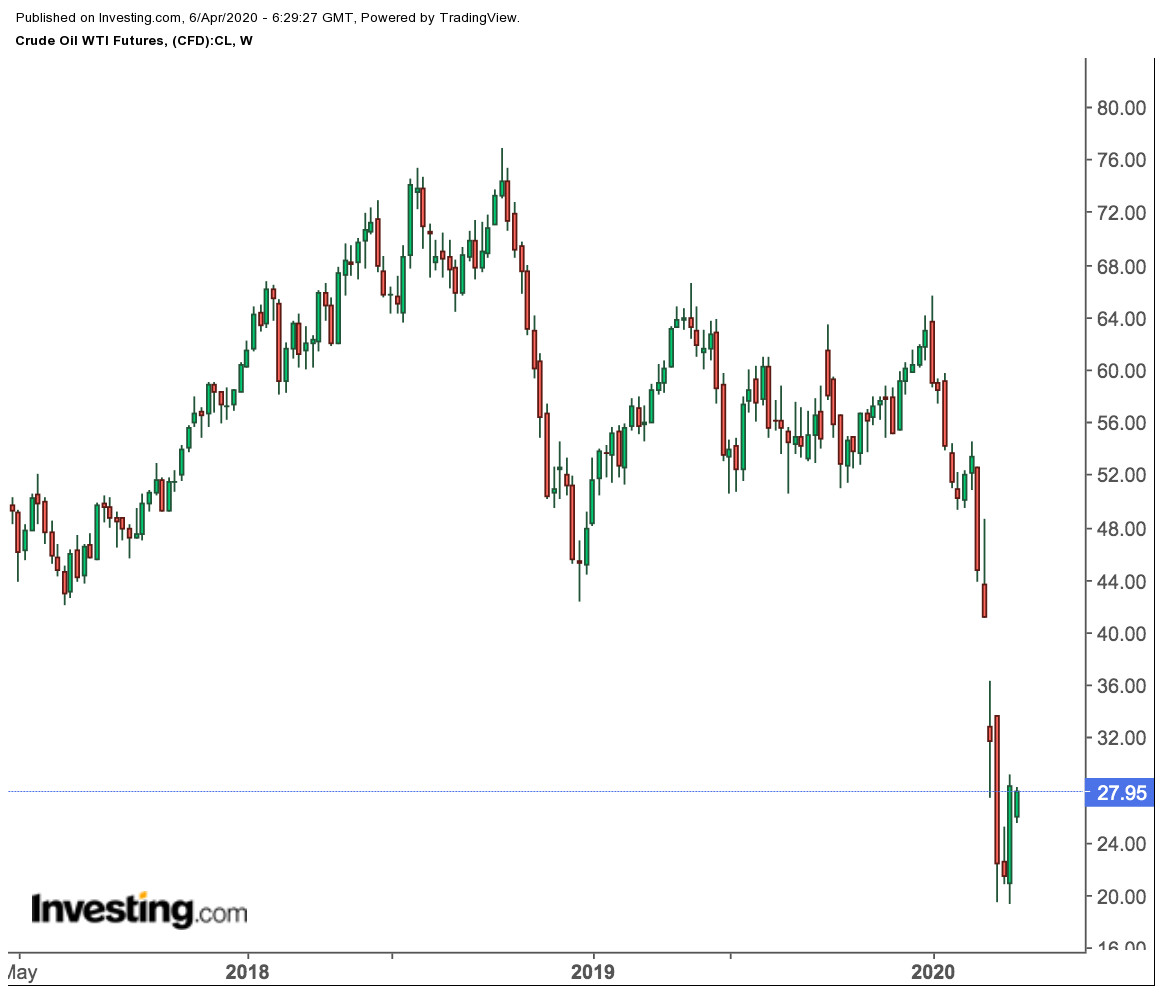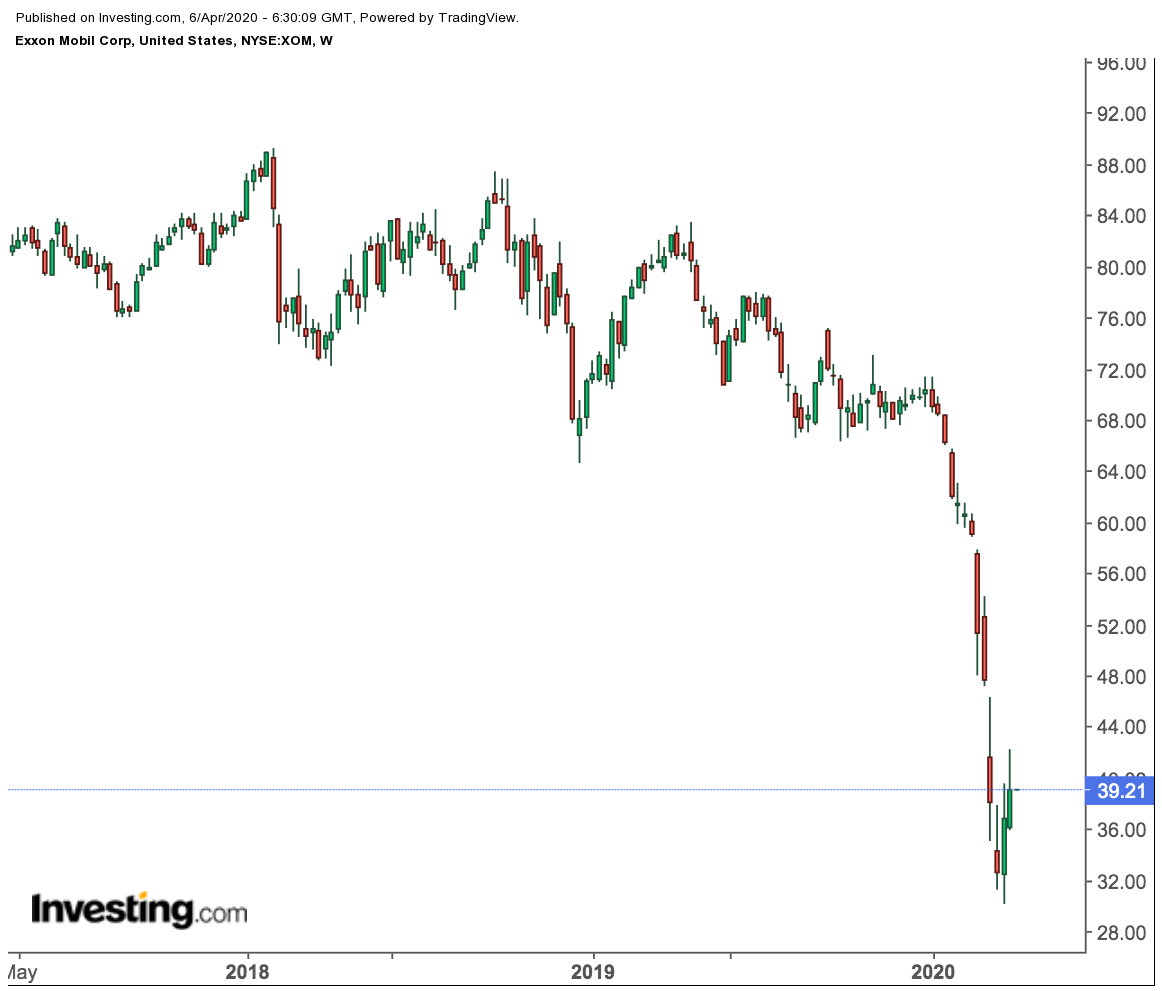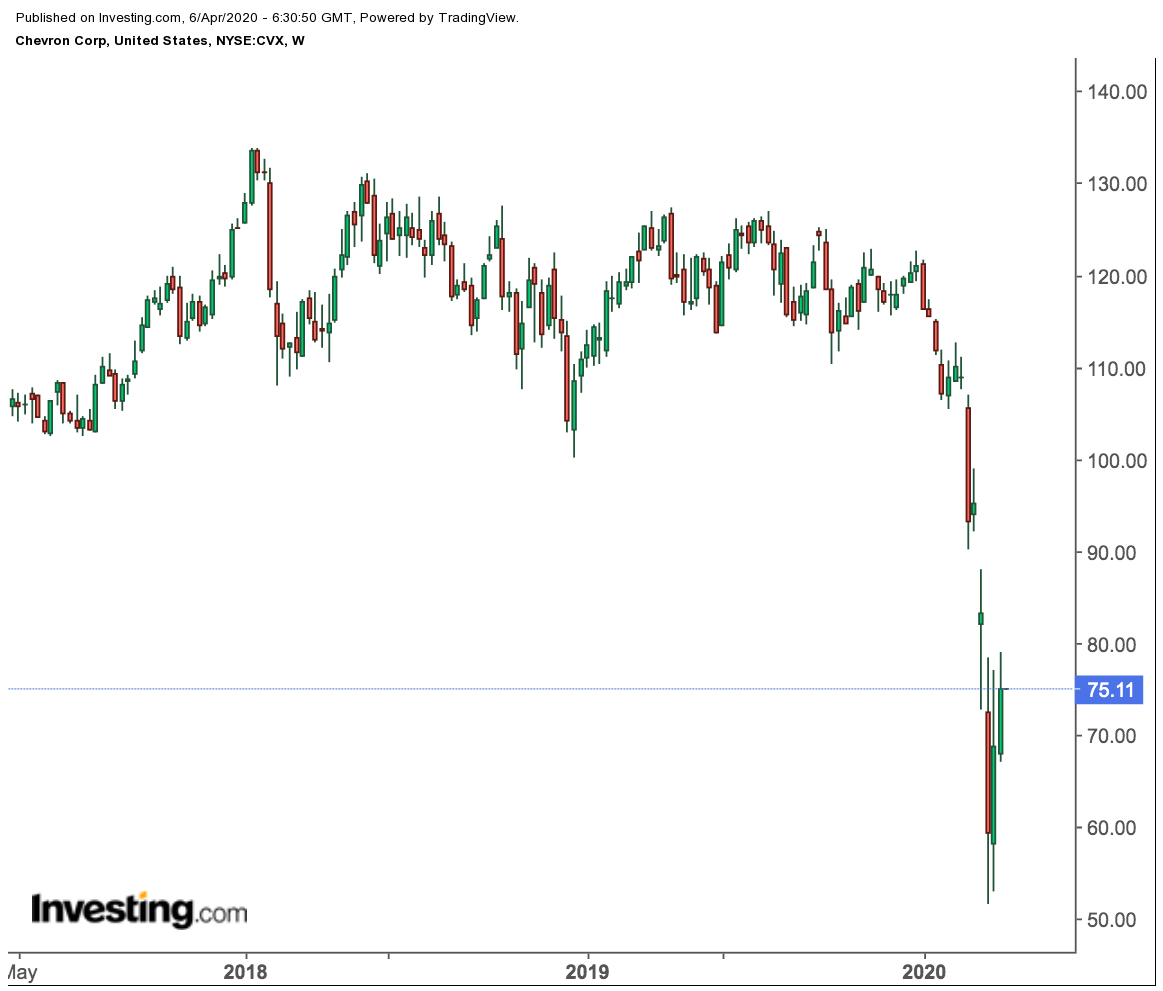Global oil markets are in the midst of the wildest ride anyone has ever seen. After a precipitous fall in a matter of four weeks, oil prices staged their biggest jump in history last week on hopes of an end to a price war between the biggest global producers.
That resurgence came after the U.S. said it’s brokering a deal between Saudi Arabia and Russia on output cuts after both countries ramped up production in their battle for greater market share, despite demand plunging as a result of the coronavirus pandemic.
This is reviving buying interest in shares of the largest oil producers that saw their stock prices crash amid the COVID-19 crisis. Exxon Mobil (NYSE:XOM), the largest U.S. producer, has gained about 30% since March 23 to $39.21. Similarly, Chevron (NYSE:CVX), another top producer, has surged 42% since its March low, closing Friday at $75.11.
But despite the move higher in oil stocks, the environment for energy companies remains uncertain and hostile. Brent futures dropped as much as 12% on Sunday on fresh concerns about delays in the possible deal between the Saudis and the Russians.
The OPEC+ bloc including Russia will hold a virtual gathering on April 9 instead of Monday after reports of divisions emerged. Saudi Arabia and Russia have indicated that they want the U.S. to join any agreement, but President Donald Trump had only hostile words for OPEC on Saturday and threatened tariffs on foreign oil to protect the domestic oil industry.
The aim of talks, first revealed by Trump last week, is to cut oil production by about 10% — the biggest ever coordinated reduction.
Even if a deal is struck for as much as 10 million barrels per day, that will barely dent the supply glut, which is estimated at as much as 35 million, according to Bloomberg data. In some corners of the physical market prices have already turned negative and traders have been putting oil into tankers at a record pace to store it at sea.
Investment Case for Chevron and Exxon
That grave supply situation doesn’t make a bullish case for oil stocks even if we take into account an eventual deal among the largest producers on oil output levels. For those investors who want to take a position in energy stocks, experts are recommending to stick with companies with quality balance sheets.
Simpler Trading director of options Danielle Shay told CNBC in a recent interview that only the biggest oil companies will survive in this “disastrous situation” for crude producers.
“The only [names], in this situation, that are going to be able to survive are ones that have enough cash on hand with a low debt-to-equity ratio,” she said. “These names are really just going to be Chevron, Exxon, and then the big names that are going to have enough money to get through this.”
Besides volatility in oil prices, investing in oil stocks entails many other risks in this environment. In order to preserve cash, big oil companies could slash dividends and abandon their share buyback plans — two major attractions for investing in oil stocks.
In the first round, many companies announced drastic cuts in their capex plans. Chevron is cutting its capex budget by 20% and, having bought back $1.75 billion of stock in the first quarter, is suspending repurchases until further notice.
ConocoPhillips (NYSE:COP) also announced a similar move last month, trimming its capex and cutting its share buyback program. Exxon may be the next to announce such measures if oil prices don’t recover.
While the yield on oil stocks is already showing an extreme level of financial distress, it’s hard to predict which producers will ultimately take the dangerous route of cutting their sacred payouts — many of which have endured numerous downturns and even survived the financial crisis of 2008.
Exxon Mobil CEO Darren Woods said at the company's investor day on March 5 that Exxon is “committed to a reliable and growing dividend.” The company has increased its disbursement each year for the past 37 years.
Bottom Line
Buying oil stocks is a risky bet in the current environment. Producers don’t have many options at their disposal to deal with this demand shock other than cutting spending and preserving cash. The sector, as a whole, is likely to underperform the market even when the recovery begins.
